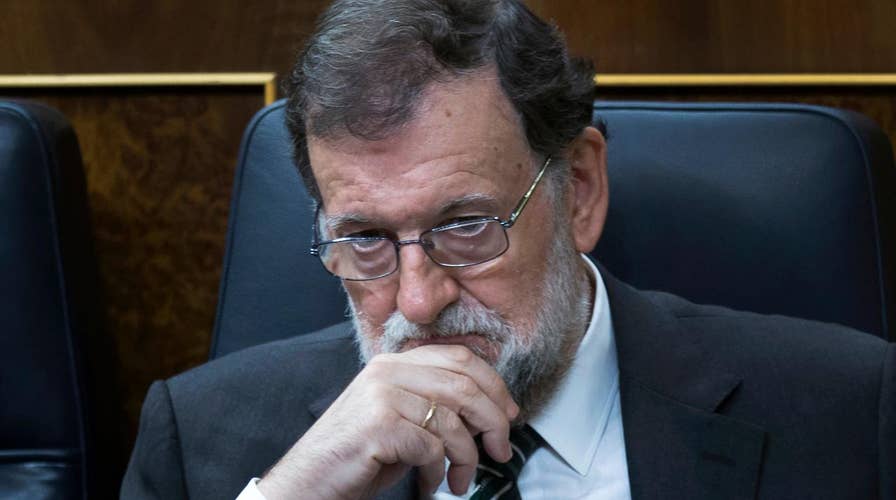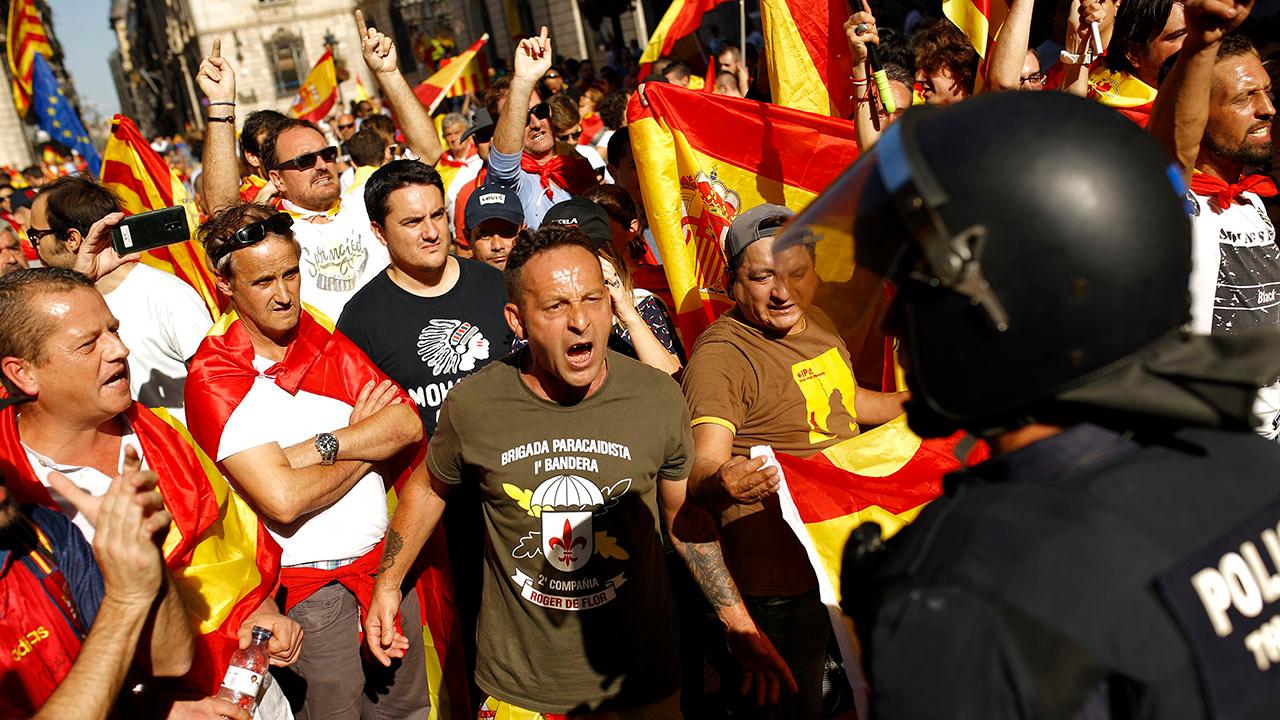Spain moves to impose direct rule on Catalonia
Spanish government calls for special Cabinet session in bid to take control of region's semi-autonomous powers; John Huddy reports from Jerusalem on the independence fight.
The Spanish government began the process on Thursday of taking control of Catalonia’s semi-autonomous powers amid threats from the region’s defiant leader.
Catalan president Carles Puigdemont, in a letter to Spanish Prime Minister Mariano Rajoy on Thursday, threated to explicitly declare independence unless talks with the central government in Madrid are held.
"If the central government persists in impeding dialogue and continuing its repression, Catalonia's parliament will proceed ... with a vote to formally declare independence," Puigdemont's letter said.
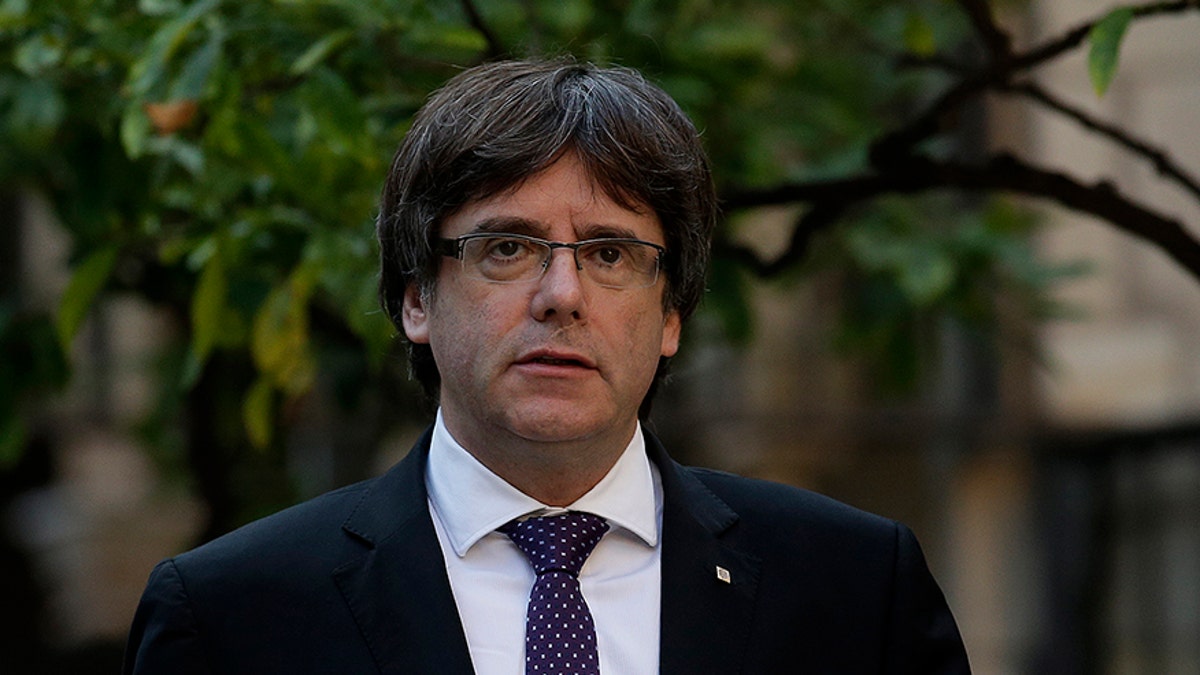
Catalan leader Carles Puigdemont warned to explicitly declare the region's independence unless talks with Spain's central government are held. (AP Photo)
The letter came with minutes to spare before the expiration of a deadline set by Spain’s government for Puigdemont to backtrack on his calls for secession.
The central government unequivocally rejected the warning, saying in a statement that it was calling a special Cabinet meeting for Saturday in which it would trigger the process to activate Article 155 of Spain’s 1978 Constitution.
“[The Spanish government] denounces the attitude maintained by those in charge of the Generalitat to seek, deliberately and systematically, institutional confrontation despite the serious damage that is being cause to the coexistence and the economic structure of Catalonia,” the statement said. “No one doubts that the Spanish government will do all it can to restore the constitutional order.”
The Cabinet meeting will "approve the measures that will be sent to the Senate to protect the general interest of all Spaniards," the statement said.
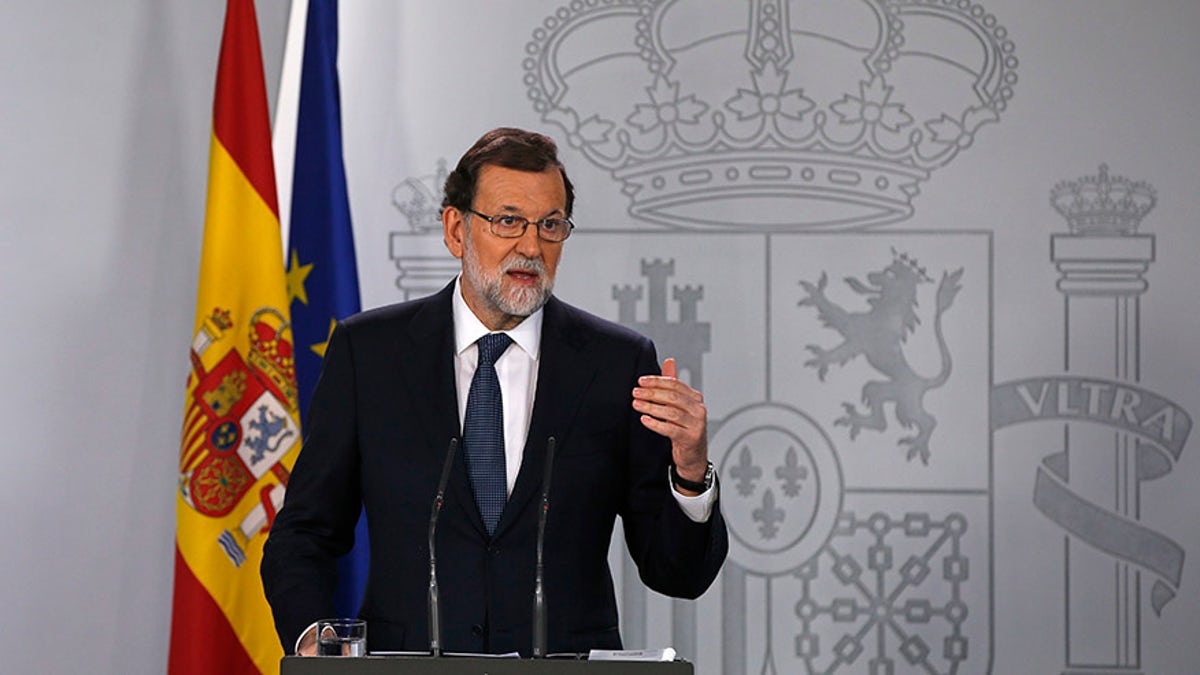
Spain's government rejected threats from the Catalan leader and announced it will hold a special Cabinet meeting meeting in which it would trigger the process to activate Article 155. (AP Photo)
Article 155 allows for central authorities to take over the semi-autonomous powers of any of the country’s 17 regions, including Catalonia. It has never been used in the four decades since democracy was restored at the end of Gen. Francisco Franco's dictatorship.
Catalans would consider the application of Article 155 an "invasion" of the region's self-government, while Spain's central authorities have portrayed it as an undesired move, yet a necessary one, to restore legality after Puigdemont's government pushed ahead with a banned referendum that violated the country's constitution.
The Catalan and Spanish governments have been engaged in a tense stand-off since the highly disputed Oct. 1 vote for impendence, which the region’s leaders say resulted in a “Yes” vote. Spain’s top court declared the vote illegal.
More than 40 percent of Catalonia's 5.5 million eligible voters cast ballots in the illegal Oct. 1 referendum as police used violence to try to enforce a court order to stop it from going ahead. Opponents boycotted the vote.
Any action could spark unrest from boiling over, as pro-secession Catalan groups have called for new protests.
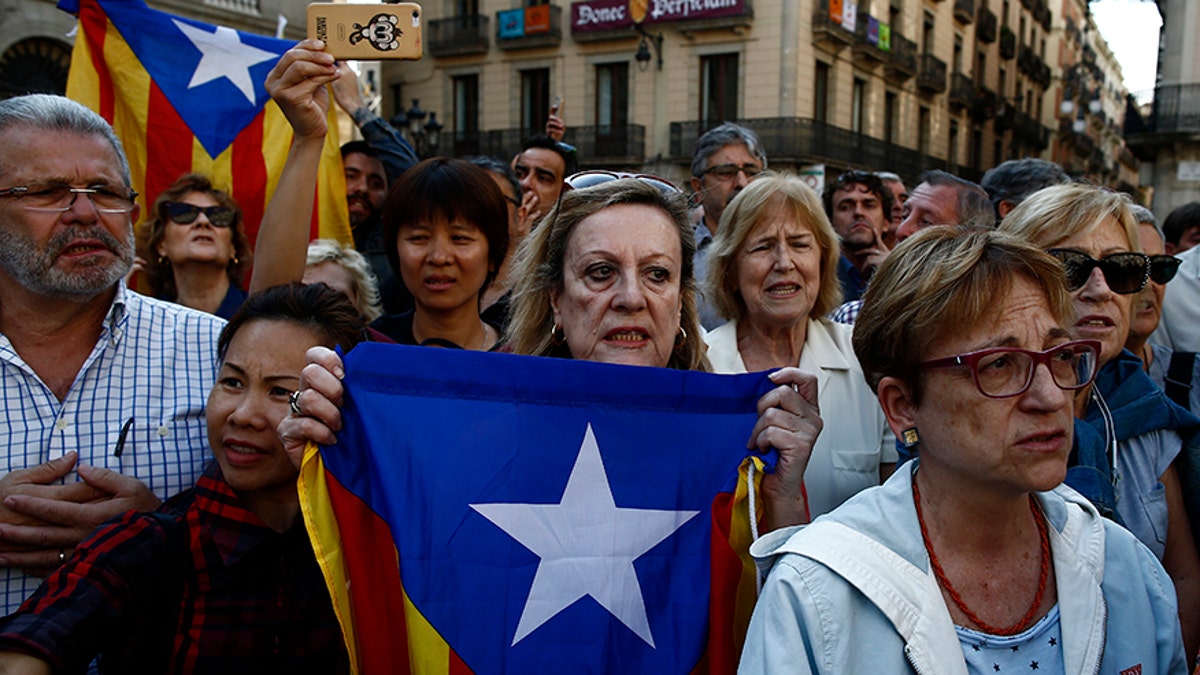
Pro-secession Catalan groups are calling for protests as the Spanish government moves to take control of the region's semi-autonomous powers. (AP Photo)
Ahead of Saturday’s meeting, Spain government needs to outline what are the exact measures it wants to apply in Catalonia and submit them for a vote in Spain's Senate.
The government was meeting Thursday morning with members of the leading opposition Socialist party to decide what measures to take under Article 155.
Spain's government had said it would be willing to hold off on applying Article 155 if the Catalan separatist leader were to call a snap regional election. But Catalan officials have ruled that out.
The Catalan government's international affairs director, Raul Romeva, told reporters in Brussels on Wednesday that Catalonia's banned secession referendum gave the region's separatist government a mandate to declare independence from Spain.
The Associated Press contributed to this report.
